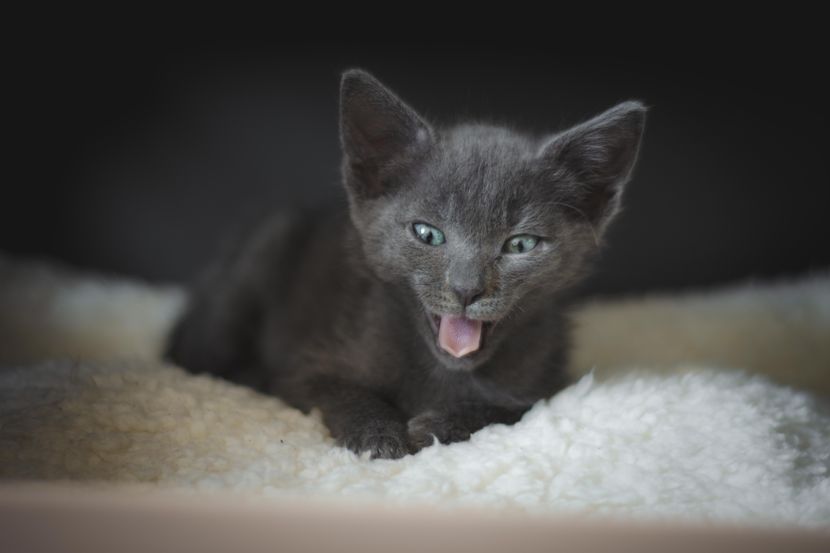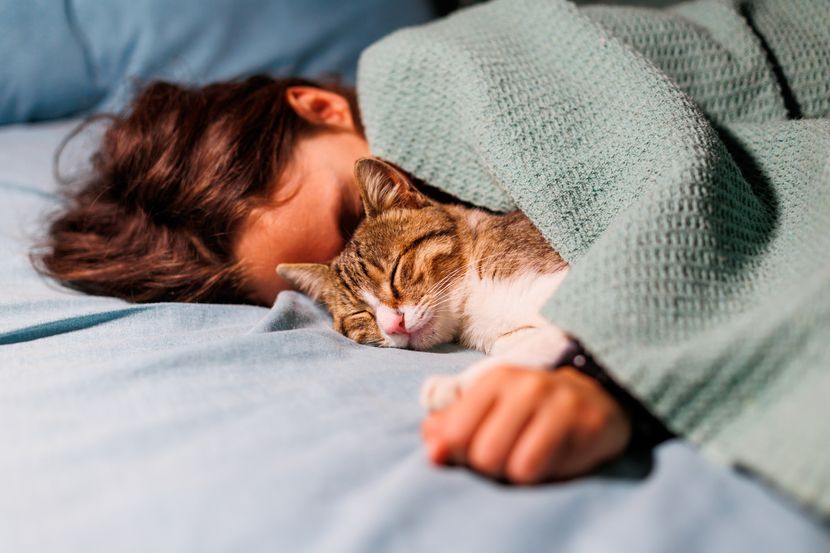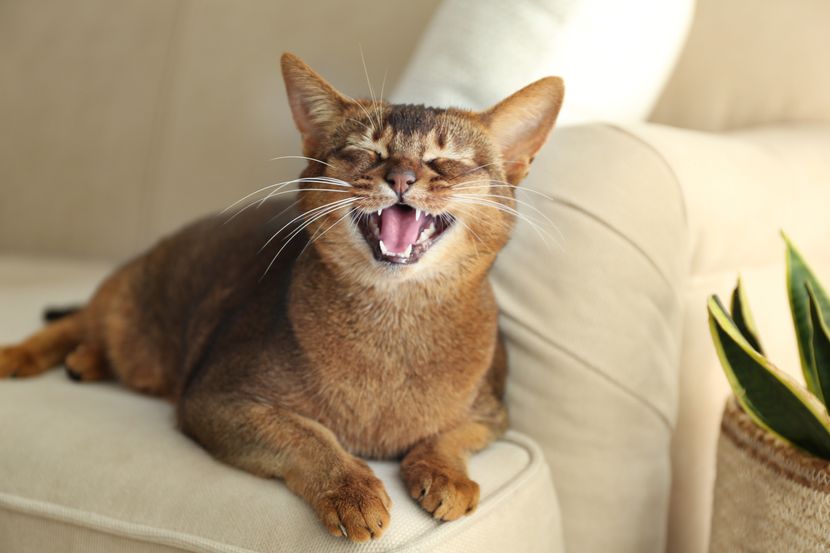
Meowing, "crying", chirping, cooing, growling...are "deaf age" sounds that will make you wonder what's going on in your pet's brain
A good night's rest is almost a mental noun for cat owners, and this is much easier said than done. Between midnight "staring" into space and finally getting up in the morning, sleeping on the "muscles" is a recurring nightmare that requires a lot of patience and endurance from the cat owner.
In addition to the fact that the cat jumps over you at night, goes over the bed, stomach, head... it also advertises itself in ways that sometimes make the blood run cold, writes Cats.com.
Meowing, "crying," chirping, cooing, growling...are sounds that will not only keep you up until the crack of dawn, but will have you wondering what's actually going on in your pet's brain.
When the cat starts "singing" after the sun goes down, knowing that it's doing it for a reason can help you relax and try to sleep anyway.
Why do cats make strange noises at night?
- The cat makes noises while having fun
Contrary to popular belief, cats are not exactly nocturnal animals. Instead of sleeping during the day and staying awake all night, cats are crepuscular creatures and are primarily active at dawn and dusk. Cats sleep both day and night, but the hours when the sun sets and rises are their favorite times to be active. If it's not sunny outside, and the cat is active, she just wants to "move". The strange sounds he makes are a sign that he's having fun: "chirping" as he stalks a housefly or babbles to the early morning birdsong.

- A cat vocalizes when it is under stress
In addition to the sounds that signal that he is enjoying something, a cat can spend the night in "mourning", expressing negative emotions: howls and soft growling sounds can be signs that he is stressed. Such advertising of the cat can also be heard during the day, but the silence of the night contributes to the sounds that the cat makes being heard more clearly. And cats that are almost all "darker" can experience stress due to a new routine, a new pet, lack of entertainment, competition for food or water, lack of attention...
- A cat makes noises when it wants something
A cat that is hungry will let you know right away. She doesn't care that your alarm isn't set to go off then, but cats who feel their "guts getting pulled" will let their owner know right away. Most cats stick to the feeding schedule that their owner sets up, but exceptions always happen. A cat may have other needs that have nothing to do with food and water: they may meow in frustration when their favorite toy gets stuck under the furniture, or they may want to cuddle at 4am!

- A cat makes noises when it dreams of something
Although it is not entirely certain, cats can dream like humans, which means that they make strange night noises in their sleep. During the REM stage, a cat's brain is as active as it is awake, which often results in the emission of sounds that coincide with their dream adventures. It can almost be compared to someone talking in their sleep. Some cats twitch their ears and tails as they chase imaginary mice, and even make noise in their sleep. Most of these sleep noises sound like soft moaning, purring, and snoring.

- Night advertising of an unsterilized cat
Adult cats that have not been spayed go through stages when they have a biological desire to mate. In females at least four months old, this is repeated every 2-3 weeks. If they are not sterilized or remain fertile, the cycle repeats throughout the year in cats. Then the cats howl, they are agitated and especially loud. Similarly, unneutered males vocalize their frustration if they are not mating and you are trying to fall asleep. The male's keen sense of smell will unmistakably register all females who are interested in mating, so they will constantly look for a way out, with unpleasant advertising.
- Night advertising of a cat with cognitive problems
Almost a third of cats aged 11 to 14 years show at least one symptom associated with this neurological condition. As cats age, their brain cells begin to die, similar to dementia in humans.
Cats with this problem will be disoriented, lethargic, restless, aggressive, have sleep problems, loss of appetite, incontinence and increased vocalization. Cats with cognitive problems are confused and agitated at night and will express their distress by making loud noises. her loud vocalizations.
Some cat breeds are known for being particularly vocal, such as the Siamese cat. You can move them out of the room (although this can cause even more problems) or buy good earplugs. If it will mean anything to you, know that the sounds your cat makes at night are perfectly normal.


